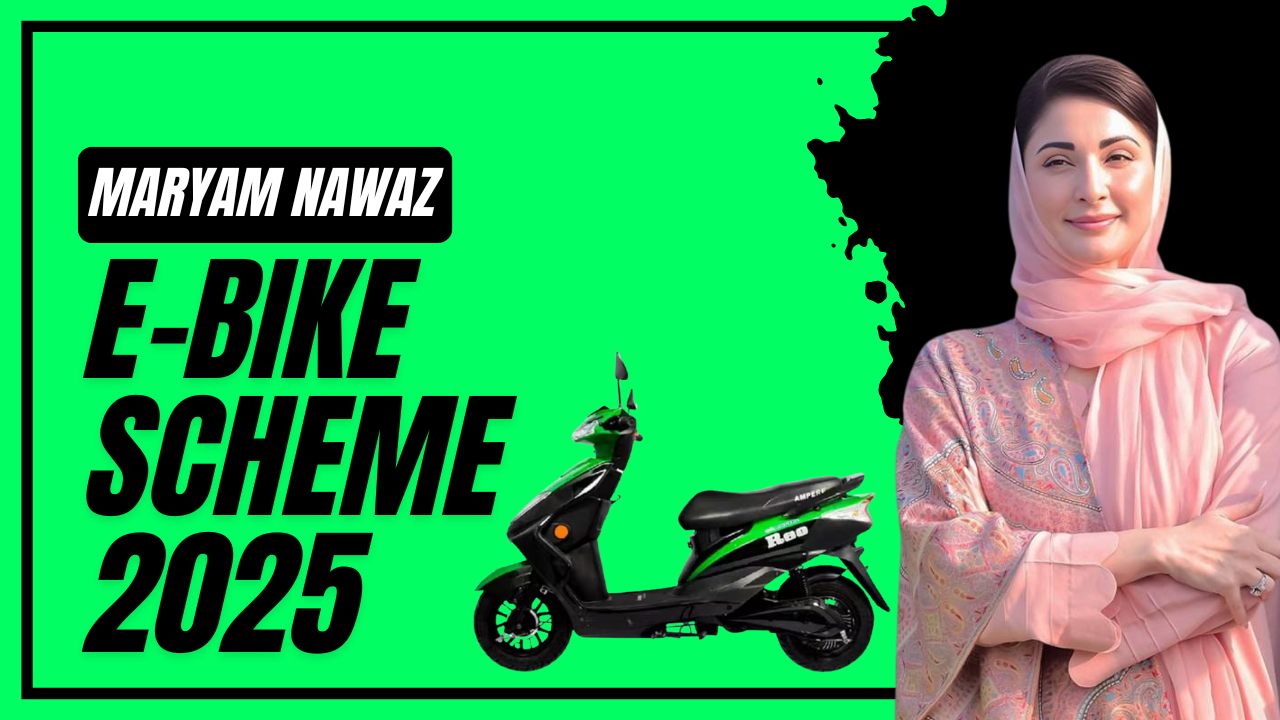Maryam Nawaz’s Electric Bike Scheme 2025 is making eco-friendly travel affordable for students and workers across Punjab. Here’s how it works, who qualifies, and why it’s changing daily commutes.
1. The Commute Problem No One Talks About
In Pakistan, getting from point A to point B isn’t always simple—especially for students and low-income workers. Public transport can be overcrowded, unreliable, and time-consuming. Fuel prices keep climbing, making motorcycles harder to afford.
Enter Maryam Nawaz’s Electric Bike Scheme 2025—a plan designed to put thousands of electric bikes on Punjab’s roads and make daily commutes cleaner, cheaper, and more efficient.
2. Why Electric, Not Petrol?
Electric bikes aren’t just trendy—they’re practical:
- Zero Fuel Costs: Charge at home or at public charging stations.
- Eco-Friendly: No exhaust fumes, no contribution to smog.
- Low Maintenance: Fewer moving parts compared to petrol bikes.
- Quiet Ride: Less noise pollution in already crowded cities.
By choosing electric over petrol, the scheme tackles both air pollution and high transportation costs.
3. Who Can Apply?
The scheme targets people who need affordable, regular transportation—especially:
- University & College Students with long commutes
- Delivery Riders working in the gig economy
- Low-Income Employees traveling to work daily
- Women seeking safer, personal mobility options
Applicants must:
- Be residents of Punjab
- Have a valid CNIC
- Provide proof of study or employment
- Commit to repayment terms (if on installment plan)
4. How the Scheme Works
The program is built for affordability and accessibility:
- Apply Online: Through the official Punjab government portal.
- Choose Your Bike: Select from approved electric bike models.
- Financing Options:
- Interest-Free Installments for students and low-income workers
- Subsidized Loans for others
- Delivery: Pick up the bike from designated distribution centers.
5. What Makes It Stand Out
Unlike regular loan programs, this scheme combines financial ease with environmental responsibility. The bikes are:
- Lightweight and easy to ride
- Equipped with modern safety features
- Designed for urban and semi-urban roads
- Capable of 60–80 km on a single charge
6. Real Impact on Daily Lives
- Hassan from Gujranwala: A university student who used to spend three hours on buses now reaches campus in 25 minutes.
- Ayesha from Multan: Runs a small home-based business and delivers products herself, saving on delivery fees.
- Imran from Lahore: A delivery rider who switched from petrol to electric and now saves over Rs. 10,000 a month in fuel costs.
7. The Environmental Angle
Punjab’s urban centers suffer from high air pollution. By replacing thousands of petrol bikes with electric ones, the scheme:
- Reduces carbon emissions
- Improves air quality
- Supports Pakistan’s climate goals
- Encourages renewable energy charging solutions
8. Challenges & Suggestions
While promising, some areas need attention:
- Expanding charging infrastructure in smaller cities
- Offering battery replacement subsidies after 3–4 years
- Training programs for maintenance and repairs
9. Bigger Picture: Building a Green Transport Culture
The Electric Bike Scheme is more than a transportation project—it’s a cultural shift. It shows that eco-friendly choices can be affordable and practical for everyday life.
FAQs
Q: Are the bikes free?
No—students and low-income workers get them on interest-free installments.
Q: How long does a battery last?
Typically 2–3 years, depending on usage.
Q: How fast do these bikes go?
Most models can reach 50–60 km/h.
Q: Where can I charge the bike?
At home using a regular socket or at public charging points.
Q: Can women apply?
Yes—the scheme is gender-inclusive.
Conclusion: A Ride Toward a Cleaner Tomorrow
The Maryam Nawaz Electric Bike Scheme 2025 is more than a transport solution—it’s a statement that Punjab is ready for cleaner, smarter, and more affordable mobility.
For students racing to lectures, workers on early shifts, and women reclaiming their mobility, this scheme isn’t just a convenience—it’s empowerment on two wheels.



